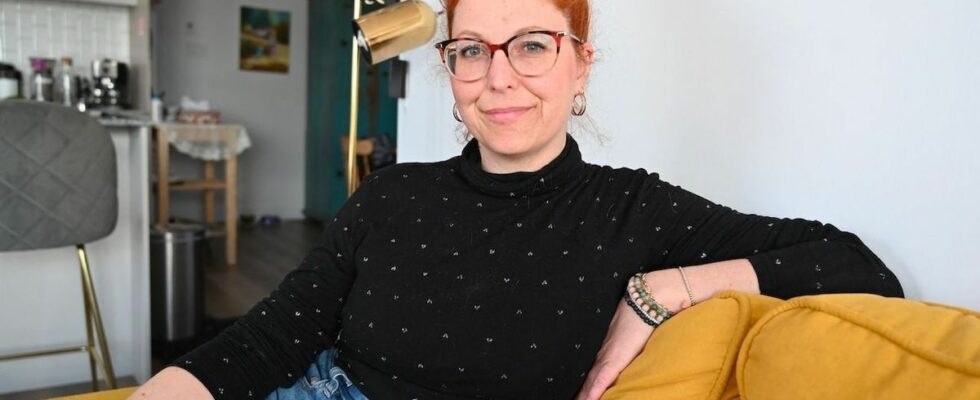Published on
updated on
Reading 3 min.
Sandra Demontigny is “relieved”. This 45-year-old Quebecer suffering from early-onset Alzheimer’s will be able to make an “advance request” for medical assistance in dying before sinking too deeply into the disease.
Since Wednesday, Quebec has expanded access to euthanasia for people with neurodegenerative diseases. They will now be able, like a will, to fill out a form in anticipation of the moment when they can no longer consent to care.
“I feel like I finally have control over what’s left of my life.“, reassures this mother. Euthanasia has been authorized since 2015 in Quebec and the province will join, without waiting for the rest of Canada, the rare places in the world where advance requests are legal – the Netherlands, the Belgium, Luxembourg and Colombia.
“My condition is degenerating” And “I would have been a prisoner of my body for years“, says this former midwife, who remains deeply marked by what her father, also suffering from Alzheimer’s, experienced, an incurable disease.
Before dying at age 53, he “talked to himself in the mirror” thinking it was another person and walked “on all fours banging his head against the wall“.
So for her, it was inconceivable that she in turn would experience such “atrocities”. She has been campaigning for years for advance requests to be permitted.
“Very strict” criteria
Before this expansion, Quebec is already the place in the world with the highest proportion of deaths attributable to assisted dying: it was administered to 5,686 people in 2023, which represents 7.3% of deaths in the province.
The majority were 70 years and older, had cancer, and had a survival prognosis of one year or less.
“Social acceptability is very strong so there is a strong expectation“, underlines Marie-Eve Bouthillier, professor at the Faculty of Medicine of the University of Montreal, adding that “a lot of people are going to want to make requests” but that the criteria are “very strict”.
Two specialist doctors or nurse practitioners will have to assess whether the patient feels any “persistent, unbearable physical or psychological suffering” cannot be appeased, as prescribed by Quebec law.
The patient must also clearly explain what are the “clinical manifestations” that he considers intolerable – for example no longer recognizing his children or incontinence – which dictate the moment when he must be given assistance in dying.
Difficult for doctors
If medical assistance in dying (MAID) is the subject of a broad consensus in the French-speaking province of Canada, this expansion is welcomed with reservations by certain doctors.
“What will be most difficult will be administering medical assistance in dying to someone who is not aware of it and who will not remember having requested it.“, mentions David Lussier, doctor and member of the Commission on End-of-Life Care of Quebec.
If the patient makes a “gesture of refusal”, a priori the doctor must cancel the procedure. But if a patient “resists, and that it is part of his illness“, then it is possible to go to the end, which will raise ethical questions for professionals, he adds.
Claude Rivard, who has administered hundreds of euthanasias over the past ten years, fears that it will therefore be necessary to use restraint measures to allow the installation of IVs.
“In the family’s mind, it could be seen as an execution“, he fears. It’s a situation “very different“in case the patient”fit, says +yes, I want it+, and extends his arm“, adds the doctor, who made the decision to refuse MAID in the case of anticipated requests in the current state of affairs.
Fears”theoretical“, however, replies Laurent Boisvert, a doctor who has also administered assisted dying since 2015 and who sees “no problem” with this extension.
He explains: “The person who is in his right mind, who communicates with his loved ones and society, will be gone“.
According to him, “I will respond to the wishes of the person who was capable, who had a life that they would consider to be dignified and decent, and who is no longer there“.
